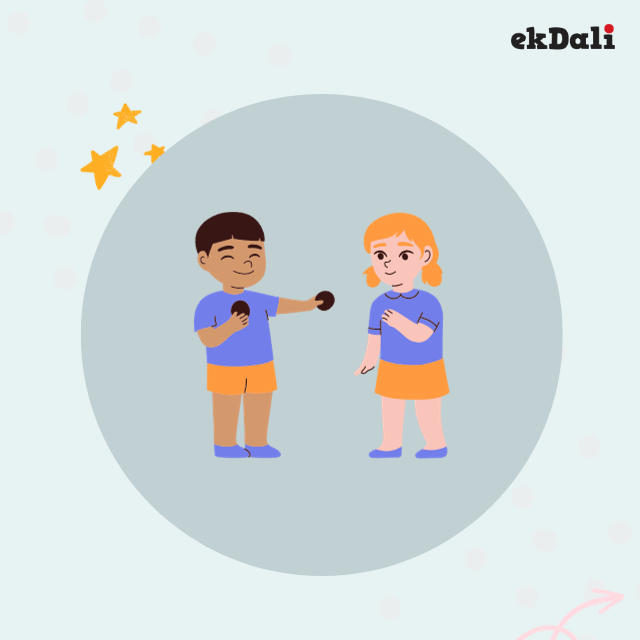Teaching your preschooler the importance of sharing.
Is it typical for your preschooler to refuse to share their toys or take a favorite book from a playmate? Yes! Be not surprised. At this age, it is normal for children to play together, but not necessarily with each other, because they are still learning how to interact socially. It's very normal for preschoolers to struggle with and fully comprehend the value of sharing with their peers. Sharing toys or food is not something that comes readily to children at such a young age.
When does a youngster learn to share?
They begin to acquire empathy and comprehend the need to take turns around the age of 3-4. They are not, however, mature enough to oppose and manage emotions. Because everything revolves around them in their own universe, they become impatient or irritated when others get in their way. It is ridiculous to expect your preschooler to grasp how sharing works. However, if the correct examples are set, they will undoubtedly follow.
Why is it vital for a preschooler to share?
The way we care for our children teaches them about self-care. There are numerous advantages to sharing, and as with most other talents, it takes time to develop. So, it is never too early to begin teaching your preschooler the notion of sharing. It's an important skill that will teach your child to:
- To get along with people,
- To care about those around them,
- To take turns, to negotiate and
- To play cooperatively,
- To compromise and to engage fairly deal with setbacks,
- Develop empathy, and
- Acquire other necessary social skills
Sharing is an important life skill that we as parents must teach, practice, and promote in our children for all of these reasons and more.
How to Teach the Value of Sharing:
Sharing, like all other abilities, requires regular help and practice for a preschooler to completely grasp and accept. Here are some basic ways to accomplish this.
1. Set a good example: Forcing your preschooler to share will not help. Instead, build a shared environment that encourages them to share. They learn from their surroundings. So set a good example at home by giving, receiving, compromising, and sharing with them and others. Set a good example of what you want children to learn.
2. Teach through play: Because children learn best through joyful activities, engage them in sharing games that teach them to share and take turns. Involve kids in hobbies that require resource sharing, such as painting and craft, gardening, and so on. Rather than competing activities, have your preschooler participate in games that require them to collaborate and work with other children.
3. Have a discussion: Discuss with your youngster the importance of sharing. Help your preschooler see how pleased his buddies would be and how much fun they would have if they shared. Listen to them and assist them in exploring the various feelings they experience when sharing. It is critical because it reassures your preschooler and shows them that you understand how they may be feeling.
4. Appreciate positive behavior: Remember to acknowledge and appreciate your preschooler's activities whether they share proactively or when requested to do so. Observing positive sharing behaviors in others around your child will encourage them to follow suit.
5. Don't punish others for not sharing: Sharing is a taught skill, and it's crucial to approach it positively. When a preschooler struggles to share, pointing out their selfishness or pressuring them to share will have bad consequences. This will most likely sow seeds of resentment in them rather than seeds of charity. So, be gentle with them; they aren't being deliberately harsh. It is critical to remember that the positive reinforcement given in such instances should be directed toward the object shared rather than the act of sharing itself.
6. If your preschooler is having problems sharing, use a timer. It can also be an excellent method of imparting discipline in them. Set a timer and tell them how long they can play with/hold on to their toy, for example. When the timer runs out, they must pass it on to a buddy or someone else in the vicinity. This strategy will teach your preschooler essential lessons in teamwork, taking turns, and compromise, in addition to sharing and learning to share. If it doesn't work at times, take a break and store the problematic item.
























